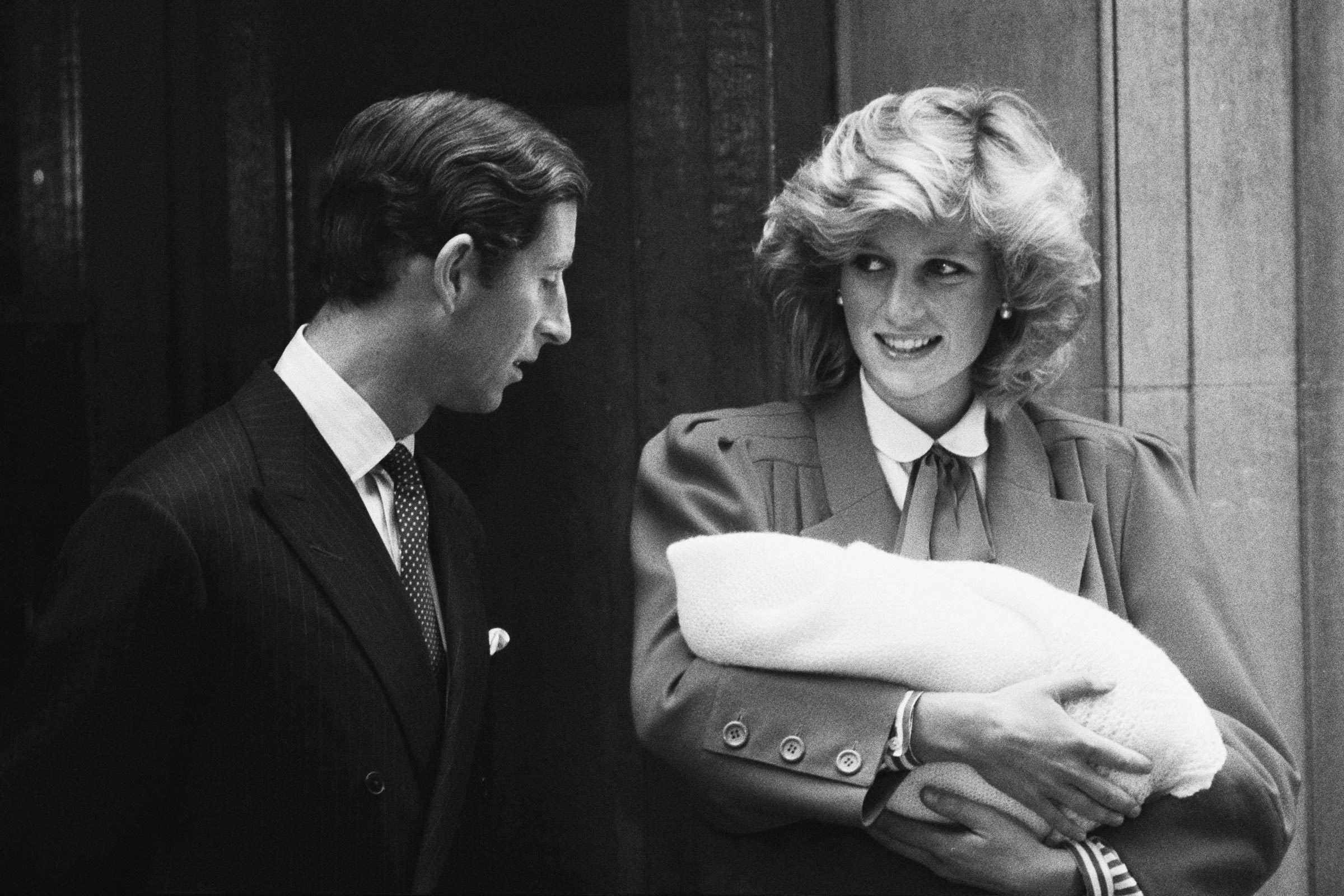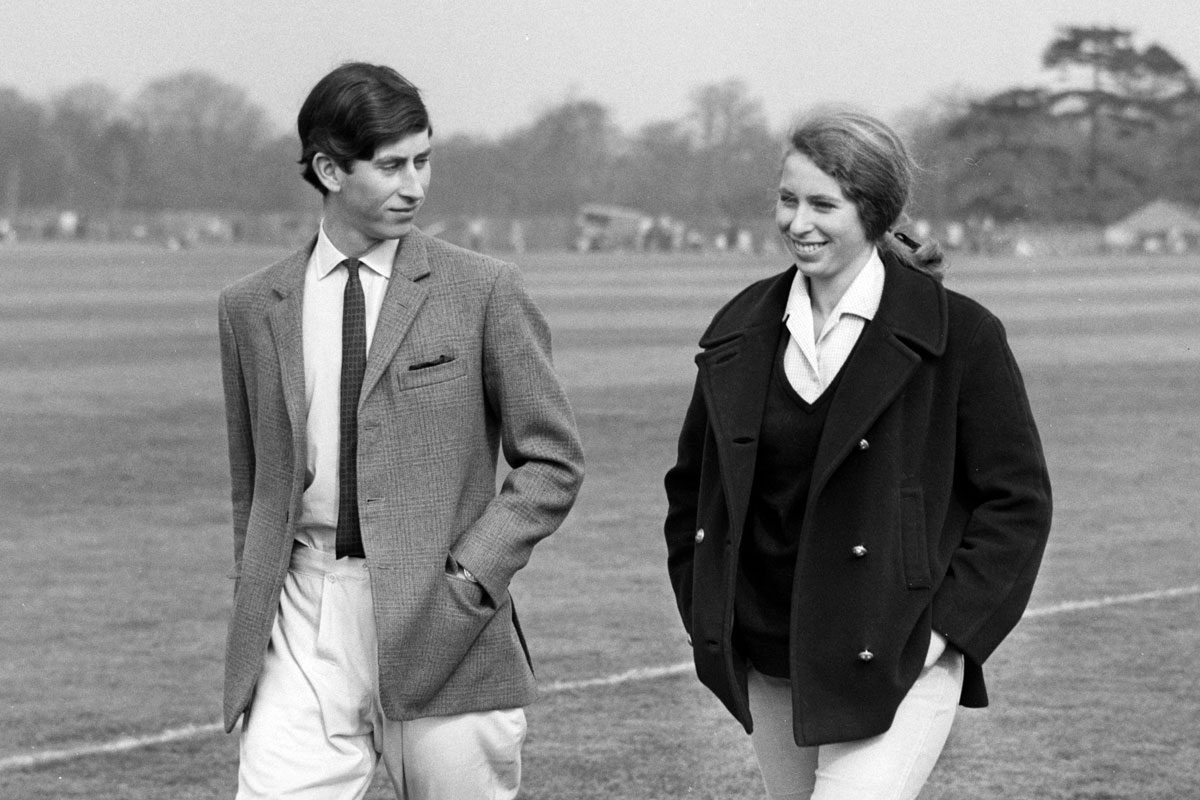The marriage between Prince Charles and Diana, Princess of Wales, was never easy, but this statement was the point of no return

The Comment Prince Charles Made After Harry’s Birth That Broke Princess Diana’s Heart

In 2014, the royal family was eagerly awaiting the birth of Kate Middleton and Prince William’s second child. Doting grandfather King Charles (who was Prince Charles at the time) made a simple comment to a well-wisher that was then published in the media. To many of us, it was a sweet sentiment about his hopes for the baby. But it brought up bitter memories for some close to the late Princess Diana, who had dodged rumors after the birth of her second child: Had Prince Charles heard the whispers? Was Prince Harry actually Charles’s son?
So what was the comment? And why did royal watchers say it was an echo of a comment he made decades earlier, after Prince Harry’s birth? Reader’s Digest spoke with royal experts Kinsey Schofield, host of the To Di For Daily podcast, and Ingrid Seward, editor-in-chief of Majesty magazine, to explain the comment that broke Diana’s heart and signaled that her already-troubled marriage to Charles was doomed.
Read on to find out what Charles said in 2014, what he said previously to Diana and why the late princess took it so hard.
Get Reader’s Digest’s Read Up newsletter for more royals, etiquette, humor, cleaning, travel, tech and fun facts all week long.
What did Prince Charles say to Princess Diana?
The comment that Charles made in 2014 was: “I hope it’s a girl.”
This was unsurprising to royal watchers, for two reasons. The first? He adored the women in his life. “I believe we can see King Charles’s desire to have a daughter in his admiration for Catherine, Princess of Wales, and Princess Charlotte,” says Schofield, who is also the author of R Is for Revenge Dress, a book about the late Princess Diana. “He is very soft hearted when it comes to the young women in his orbit.”
The second reason, however, was it was very similar to a previous comment he’d made to Diana that deeply wounded her. Back in 1984, when Diana gave birth to Prince Harry after nine hours of unmedicated labor, Charles’s reaction to Harry’s birth wasn’t a congratulations or words of admiration. Instead, according to Diana’s account in Diana: Her True Story, he reacted with: “Oh God, it’s a boy.”
“Princess Diana knew that Prince Charles was hoping for a daughter,” Schofield says. “And despite knowing the sex of their baby, she kept it a secret to postpone the disappointment.” But any hope of sparing his feelings was shattered the moment Charles spoke.
And if his initial reaction wasn’t painful enough, his next remark cut even deeper: “And he’s even got red hair.”
Why was the comment so hurtful for Diana?
While Charles later insisted he was joking, Diana didn’t find it funny. The comment touched on two sensitive topics—her responsibility to produce an heir for the throne and lingering whispers about her virtue. Some had wondered if Prince Harry was actually Charles’s son, and people speculated that the remark alluded to her past affair with red-haired James Hewitt, though the relationship had ended two years before Harry’s birth. (Not to mention that Diana’s own family tree was filled with redheads, making the remark sting on another level.)
Even knowing how much it hurt her, Charles brought it up again at Harry’s christening, this time to Diana’s mother, Frances Kydd.
“We were so disappointed—we thought it would be a girl,” he reportedly told Kydd, who was appalled and later relayed the statement to Diana.
And with that, something inside Diana shut down. “As suddenly as Harry was born, it just went bang, our marriage—the whole thing went down the drain,” Diana later told biographer Andrew Morton. While the couple wouldn’t officially divorce until 1996, Diana saw their relationship as doomed from that moment forward.
Why did King Charles want a girl so badly?

Schofield believes Charles’s strong desire for a daughter may have stemmed from his famously close relationship with his sister, Princess Anne.
“He grew up with a sister who was very important to him, and he wanted that for his son,” she explains. “I believe being born into the royal family is likely a difficult position, and Prince Charles recognized how valuable his relationship with his sister was. He has always been closer to Princess Anne. He was likely hoping to secure an ally for his firstborn son, Prince William.”
The irony? While Charles may not have been fixated on the traditional expectation of producing “an heir and a spare,” Diana was keenly aware of her duty, especially after enduring years of royal family comments on heirs. So while the comment may not have directly questioned whether Prince Harry was Charles’s son, it hurt deeply nonetheless. “It was technically her responsibility to provide the monarchy with an heir and a spare—she acknowledged that, and she accomplished it quickly,” Schofield notes. “Once she completed that task and recognized she would never have the type of love she needed from Prince Charles, she shifted her focus to her charitable work.”
Meanwhile, Charles was increasingly spending time—platonically, he claimed—with Camilla Parker Bowles, and his relationship with Diana became even more distant. Any chance of having another child, a daughter, faded away.
A changing view of women in the monarchy
While Diana’s hurt was understandable, Charles’s wish for a daughter also reflected a shift in how the monarchy viewed women. “The royal family has always been led by strong women, from the days of Queen Boadicea to the late Queen Elizabeth II, who reigned for 70 years,” says Seward, author of Diana: An Intimate Portrait and My Mother and I, a book about King Charles’s relationship with Queen Elizabeth II. “In fact, many thought Princess Anne would have made a better queen than Charles a king, but it was not meant to be.”
For most of the monarchy’s rule, male primogeniture dictated that the firstborn son inherited the throne. This only changed with the Succession to the Crown Act of 2013, ensuring that birth order, rather than gender, determined succession. While it came too late to affect Anne or Diana’s children, it meant that Princess Charlotte became the first royal daughter to keep her place in the line of succession ahead of a younger brother.
So while Charles’s comment to Diana may have caused pain in the moment, his wish for a daughter reflected a modernizing monarchy—one where women could be seen as equal heirs. “In recent history, men are not that important,” Seward says.
In the end, it appears that both Charles and Diana ultimately got what they wanted. Charles now has a family that includes many strong women, including two granddaughters he can dote on. Diana’s legacy lives on in a different way—through her sons. William and Harry both inherited her deep sense of compassion, her ability to connect with people, and her dedication to charitable work, values that have shaped the modern royal family. And though Diana never had a daughter, many have remarked that Princess Charlotte, with her confidence and charisma, carries a striking resemblance to the grandmother she never met.
About the experts
|
Why trust us
Reader’s Digest has published hundreds of stories on the British royal family, providing a behind-the-scenes look at the fascinating facets of the monarchy. We regularly cover topics including the latest royal news, the history and meaning behind time-honored traditions, and the everyday quirks of everyone’s favorite family members, from Queen Elizabeth’s daily snack to Prince William’s confessions about his home life. We’re committed to producing high-quality content by writers with expertise and experience in their field in consultation with relevant, qualified experts. We rely on reputable primary sources, including government and professional organizations and academic institutions as well as our writers’ personal experiences where appropriate. For this piece on the question “Is Prince Harry Charles’s son?” Lauren Cahn tapped her experience as a longtime journalist who often covers knowledge, history and the British royal family for Reader’s Digest. We verify all facts and data, back them with credible sourcing and revisit them over time to ensure they remain accurate and up to date. Read more about our team, our contributors and our editorial policies.
Sources:
- Kinsey Schofield, host of the To Di For Daily podcast and author of R Is for Revenge Dress; phone interview, March 19, 2025
- Ingrid Seward, royal biographer, commentator, author and editor-in-chief of Majesty magazine; email interview, March 18, 2025
- Diana: Her True Story by Andrew Morton























